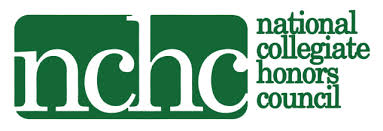Writing for Social Justice
Instructor(s): Kani Aniegboka
Course Description
How do we write about social justice, and why? More importantly, how can we effectively engage with the complex social and political issues that define our world today? This course invites students to explore these questions by examining the intersection of language, identity, and power. Together, we’ll explore how the choices we make in our writing—whether in word choice, style, or approach—impact our ability to communicate ideas and advocate for change. Writing for social justice is not solely about activism; it’s about understanding and addressing the underlying biases and power dynamics in the topics that matter to you, regardless of field, genre, or platform.
This course is designed for students who want to become more thoughtful communicators, whether or not they consider themselves writers or social justice advocates. Writing isn’t just about stringing words together—it’s about learning to think critically, frame arguments clearly, and connect your ideas to the world around you. Throughout the semester, you’ll engage with diverse texts, practice crafting persuasive and analytical pieces, and develop skills essential in both personal and public contexts.
The course emphasizes developing rhetorical strategies, refining analytical skills, and fostering a sense of personal and civic responsibility. Students will gain confidence in evaluating and addressing complex issues through guided peer reviews, structured workshops, and reflective assignments. You will have the opportunity to experiment with different genres, from personal narratives to policy critiques, ensuring that you leave with a versatile skill set.
No prior experience is necessary—just a willingness to engage with challenging topics, participate in discussions, and approach writing with an open mind. By the end of the course, you’ll have built a portfolio of work that reflects your growth as a writer and thinker, and you’ll have gained tools for making a difference through your words.
Texts
*All reading materials will be supplied electronically through Canvas.
- Martin Luther King Jr., “Letter from Birmingham Jail”
- Ilya Kaminsky, Deaf Republic
- Paulo Freire, Pedagogy of the Oppressed
- Frederick Douglass, Excerpts from “The Heroic Slave”
- Isabel Wilkerson, Caste: The Origins of Our Discontent
- Carmen Maria Machado, Excerpts from In the Dream House
- Ta-Nehisi Coates, Excerpts from Between the World and Me
- Jill McDonough, “Dear Gaybashers”
- Eloisa Amezcua, “Fighting is ike a Wife”
- Mohsin Hamid, “Of Windows and Doors”
- Nipun Mehta, “Designing for Generosity”
- Ntozake Shange, Excerpts rom We Troubled the Waters
Requirements
Students will complete several assignments, including a mid-term exploring their identity and its connection to social issues, and a final project that offers either a critical text analysis with multimodal elements or a social justice-oriented call to action piece. Additionally, students will give a 5-7 minute seminar talk related to their final project.
Students will be expected to engage in weekly discussions about the course readings, critiquing various texts from a social justice perspective and collaboratively exploring themes of power dynamics and systemic inequalities. Students will read a variety of texts across genres, including works by Ilya Kaminsky, Ntozake Shange, Carmen Maria Machado, Jill McDonough, and Mohsin Hamid, among others. These readings will serve as the basis for class discussions, written assignments, and analysis.
- Participation (15%) Students are expected to engage in weekly discussions, both in-class and potentially online.
- Weekly Reflection Journals (15%) Students will complete weekly reflection journals (1-2 pages) in response to the readings and class discussions.
- Peer Review & Group Collaboration (10%) Students will be required to provide constructive feedback on their peers' drafts.
- Mid-term Assignment—Exploring Identity Memoir (20%) In a 4-5 page paper, students will reflect on their own identity and its intersection with societal issues.
- Final Project—Text Analysis or Call to Action Piece (25%) Students will choose between two options for their final project. The first option is a critical text analysis that incorporates multimodal elements (e.g., video, podcasts, blogs), while the second is a persuasive "call to action" paper on a social justice topic of their choice. Both options require students to construct a persuasive argument. The final submission will be 6-8 pages or a 10-15 minute multimodal project.
- Seminar Talk (15%) As part of the interdisciplinary nature of the course, students will deliver a 5-7 minute persuasive speech to the class on a selected social justice issue.
About the Instructor(s): Kani Aniegboka
Kani is in his final year of the MFA program at the University of New Mexico, concentrating in Creative Nonfiction Writing. Kani has been honored with teaching awards, including a UNM’s College of Arts and Sciences Teaching Excellence Award for teaching assistants and the 2023-2024 Susan Deese-Roberts Outstanding Teaching Assistant Award. Due to his past experience in community leadership and public speaking, Kani is passionate about the intersection of rhetoric, justice, and communication. With a particular focus on how rhetoric can either empower or harm, Kani likes to bring a critical lens to discussions on language’s role in shaping public perception of social issues. He aims to foster a supportive classroom environment where students can engage in meaningful dialogue, explore diverse viewpoints, and build confidence in both written and spoken advocacy.



Social Media
For news, information, prizes and more fun stuff follow us on our social media!
Honors College Resources